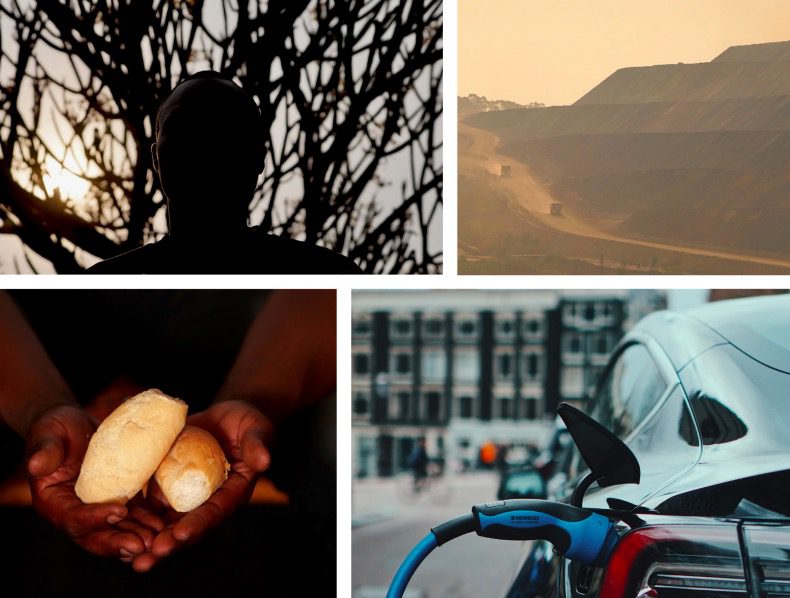
The Road to Ruin? Electric vehicles and workers’ rights abuses at DR Congo’s industrial cobalt mines
Executive Summary
Cobalt is everywhere. It is a silvery-blue mineral used in the rechargeable batteries that power our mobile phones, laptops and tablets, and in larger quantities, the electric vehicles that will soon dominate our roads. It is a strategic mineral in the plan to decarbonise and move away from fossil fuels towards renewable energy. Accelerating this switch is one of the priorities to tackle the climate crisis and industry experts forecast that electric vehicle sales will skyrocket in the next 10 years. This will require a dramatic increase in cobalt production.
The booming demand for cobalt has a dark side, however. The Democratic Republic of Congo, one of Africa’s poorest nations, holds the lion’s share of the world’s cobalt reserves. In 2020, 70% of the world’s cobalt was extracted from within its borders with tens of thousands of workers labouring in large-scale industrial mines to dig up the ore. Multinational mining companies that own many of Congo’s mines, eager to demonstrate their “green” and “responsible” credentials, say they produce “clean” and “sustainable” cobalt, free from human rights abuses, and that their operations contribute to good jobs and economic opportunities.
This report, based on extensive research over two years, paints a very different picture. It shows dire conditions for many Congolese workers in the industrial mines, often characterised by widespread exploitation and labour rights abuses. Many workers do not earn a “living wage” – the minimum remuneration to afford a decent standard of living – have little or no health provision, and far too often are subjected to excessive working hours, unsafe working conditions, degrading treatment, discrimination and racism.
“We were working hard, without any breaks, for $2.5 a day. If you didn’t understand what the boss said to you, he would slap you in the face. If you had an accident, they would just fire you.” – Congolese worker
In recent years attention has mainly focused on Congo’s artisanal mining sector, partly because of the risks of child labour it creates, whereas the conditions for workers in the large-scale industrial mines have gone largely unnoticed. This report examines workers’ rights at Congo’s industrial mines where the large majority of cobalt is coming from, producing some 80% of the cobalt exported from the country (in contrast to the 20% produced in artisanal mines).
The findings presented in this report are based on detailed research over 28 months by UK-based corporate watchdog Rights and Accountability in Development (RAID) and the Centre d’Aide JuridicoJudiciaire (CAJJ), a Congolese legal aid centre specialised in labour rights.
The research team carried out extensive field research in and around Kolwezi, a mining town where many of Congo’s cobalt and copper mines are located. It is informed by 130 interviews of workers and former workers at five mining companies, as well as interviews with subcontractors, union representatives, lawyers, Congolese local authorities, medical staff and industry experts. The research focuses on five of the world’s largest copper and cobalt mines. They are owned or operated by multinational mining companies which together produced nearly half of the global supply of cobalt in 2020: (i) Glencore’s Kamoto Copper Company (KCC), (ii) Eurasian Resources Group’s Metalkol RTR, (iii) EXECUTIVE SUMMARY THE ROAD TO RUIN? 4 China Molybdenum’s Tenke Fungurume Mining (TFM), (iv) China Nonferrous Metal Mining Company (CNMC)’s Société minière de Deziwa (Somidez) of which the Congolese state company Gécamines owns 49% and, (v) Sino-congolaise des mines (Sicomines) a joint venture between Gécamines and a consortium of Chinese companies and investors.
Read full report here.
Read more about RAID here.
